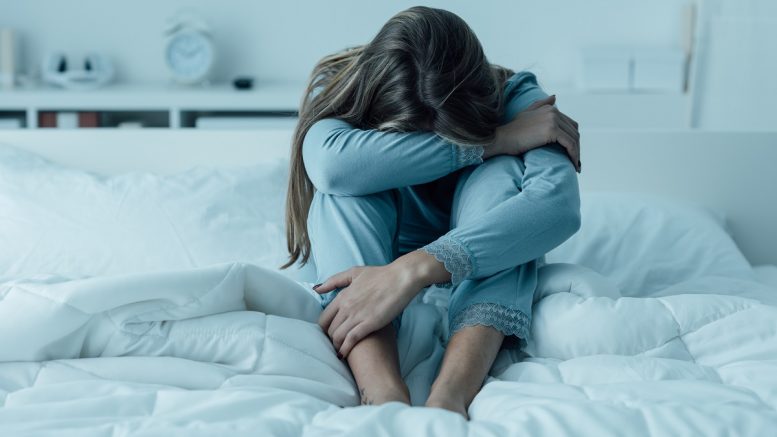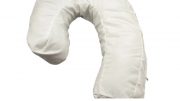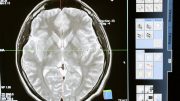Anxiety is the prevalent psychological disorder of this century, and as such, it should be treated very seriously. As the data from anxiety statistics UK shows, 6 out of 100 people will have a form of anxiety. Today we’re talking about CBD and its utilization in treating anxiety, and what has been done scientifically in the field.
Dealing With Anxiety With CBD
The effects and boosting of serotonin are traditionally medicated by different antidepressants. However, multiple studies conducted on the usage of CBD revealed that this active ingredient has a positive effect on reducing anxiety.
Cannabidiol (CBD) is slowly starting to represent one of the most effective ways of dealing with anxiety disorders, according to clinical research. A Washington University study confirmed the positive effect and sense of relief associated with the patient’s state of mind.
The appearance of CBD for medical purposes has pushed different opinions on the subject of using this ingredient in the fight against stress and anxiety. Disputing the use of this supplement, however, comes from the fact that it was often portrayed negatively due to the presence of tetrahydrocannabinol (THC), an integral part of this supplement.
Over the years, studies have been conducted on whether this supplement is suitable for treating anxiety disorders and the appropriate doses patients can receive. A majority of findings showed that CBD is effective in the fight against Generalised Anxiety Disorder (GAT), Post Traumatic Stress Disorder (PTSD), Social Anxiety Disorder (Social Phobia), Panic Disorder, and Obsessive-Compulsive Disorder (OCD). New CBD research mirrors similar findings for psilocybin, the compound found in magic mushrooms, which has also been shown to have anti-anxiety and anti-depressant effects which can last for nearly five years after being administered. Like CBD, demand for psilocybin-containing bc mushrooms from reputable dispensaries has steadily increased over recent years.
Most cases where patients were prescribed CBD treat anxiety disorders have shown positive results. Carrie Cuttler, a clinical assistant professor at Washington State University (WSU), department of psychology, was one of the leading figures in the study of how cannabis affects stress in patients. She explains that most of the already-existing research has been exclusively aimed at the oral administration of pills in the laboratory.
The study that the WSU conducted was unique in that it focused on inhaling the actual cannabis by patients in the comfort of their own homes.
The study provided the following results: One puff of cannabis with higher levels of CBD and lower levels of THC has been shown to reduce symptoms of depression. Two puffs of the same amount were successful in reducing symptoms of anxiety. Ten or more puffs with high levels of CBD and THC had the most significant effect on reducing stress.
The study showed that anxiety symptoms were reduced in 93.5% of the cases. 2.1% of the patients showed aggravated results, while 4.4% remained unchanged. The study also focused on the effects of cannabis on both sexes. The results showed cannabis had a more significant impact on reducing stress in women than in men.
CBD’s prevalence for medical purposes has been the research topic for almost a decade, and studies have centred around treatment methods.
Reducing Stress
A study conducted in 2011 showed that the dosage of CBD helped reduce stress and treat social anxiety disorder during public speaking. Similarly, a study conducted in 2019 showed that 80% of patients with sleep deprivation and anxiety experienced reduced symptoms after using CBD.
In terms of using this supplement for treating anxiety, CBD products vary. They are available in the form of oils, capsules, drops, vapes, teas, creams and gels, and so forth. Patients are offered a wide selection of products to find which suits them the most.
Currently, there is no universally accepted dosage for using CBD to treat anxiety; however, multiple studies have found that using between 300 mg and 600 mg has resulted positively.
Also, it’s important to emphasise that because these products are not monitored by the Food and Drugs Administration (FDA), a uniform labelling system does not exist.
Therefore, the regulatory system is yet to keep up with the increasing usage of CBD for medical purposes. Before using this supplement to treat anxiety, patients should check their state’s laws and regulations on marijuana-based medication.
Although studies that were conducted showed positive results in taking CBD to combat anxiety, patients are advised to exercise this with particular caution since there is a possibility that some might experience side effects.
Some common side-effects and discomforts patients may experience are fatigue, diarrhoea, and drastic changes in weight and appetite.
While taking this medicine, if withdrawal symptoms, such as fogginess, dizziness, and nausea occur, patients should stop consuming this supplement and contact their medical specialists.
Altogether, it has been confirmed that CBD shows positive results in the treatment of all types of anxiety disorders. Multiple studies showed that cannabidiol is slowly becoming one of the most popular ways of combating stress.
CBD products include vapes, creams, teas, oils, etc. However, there is still no universally accepted dosage, and patients are advised to exercise the usage of this supplement with the utmost caution.
Conclusion
As the results of numerous studies show, CBD has many uses in treating various symptoms and disorders, and anxiety is among those. Always consult your physician before taking CBD and ensure you’re getting certified, lab-tested products that are 100% safe.





